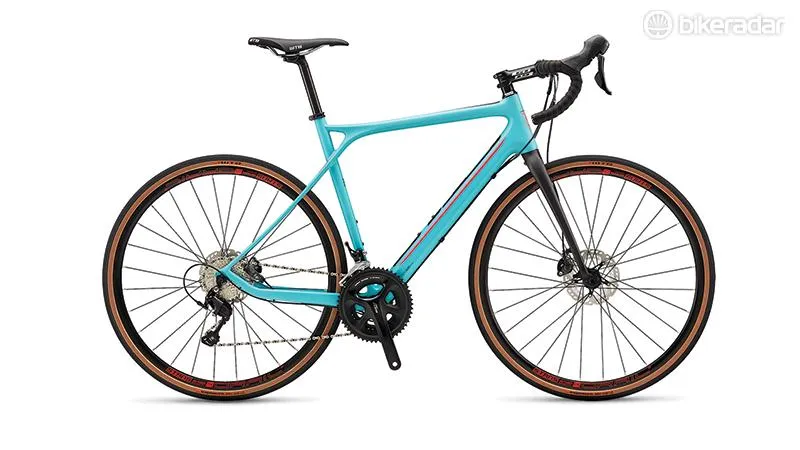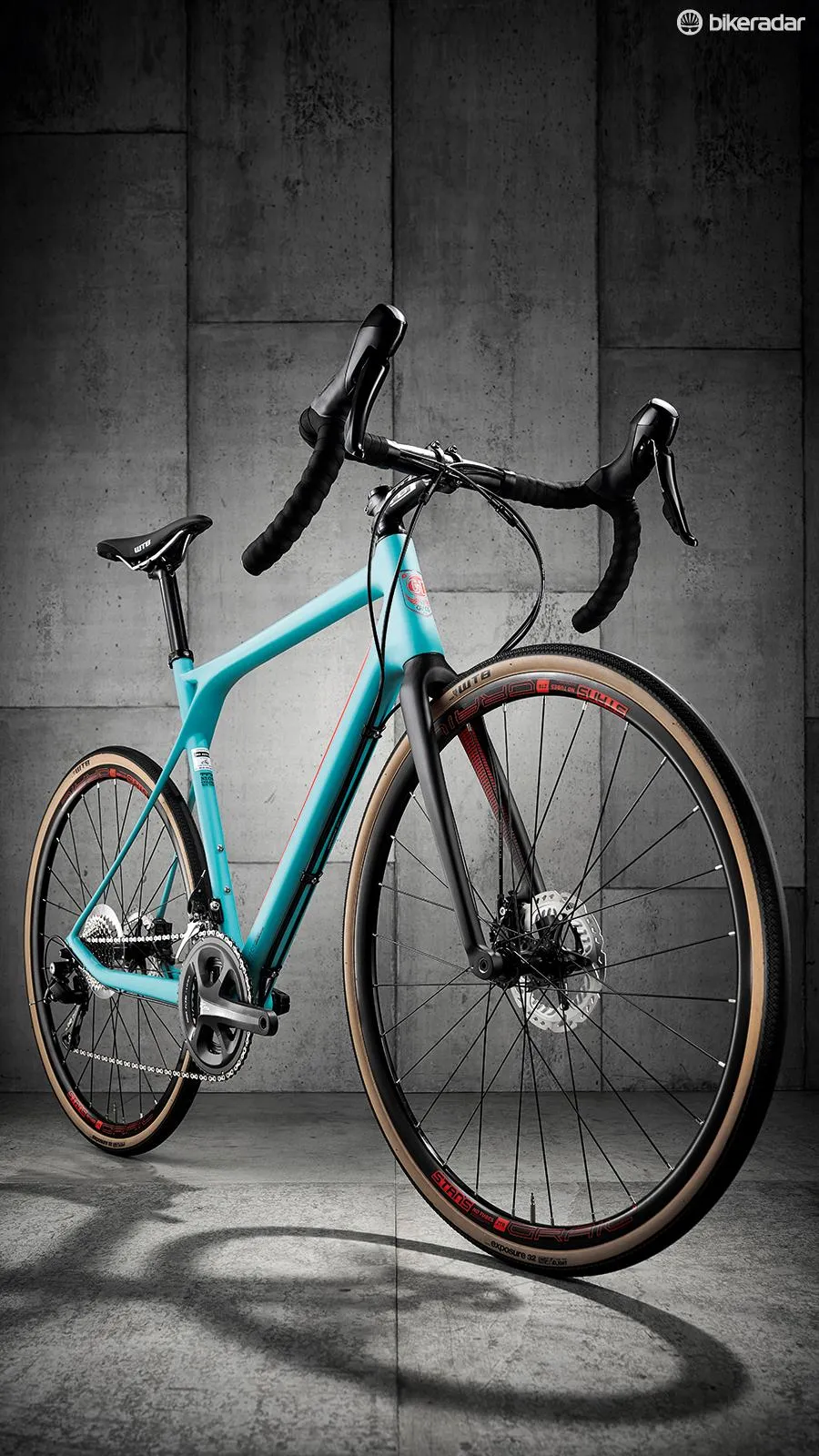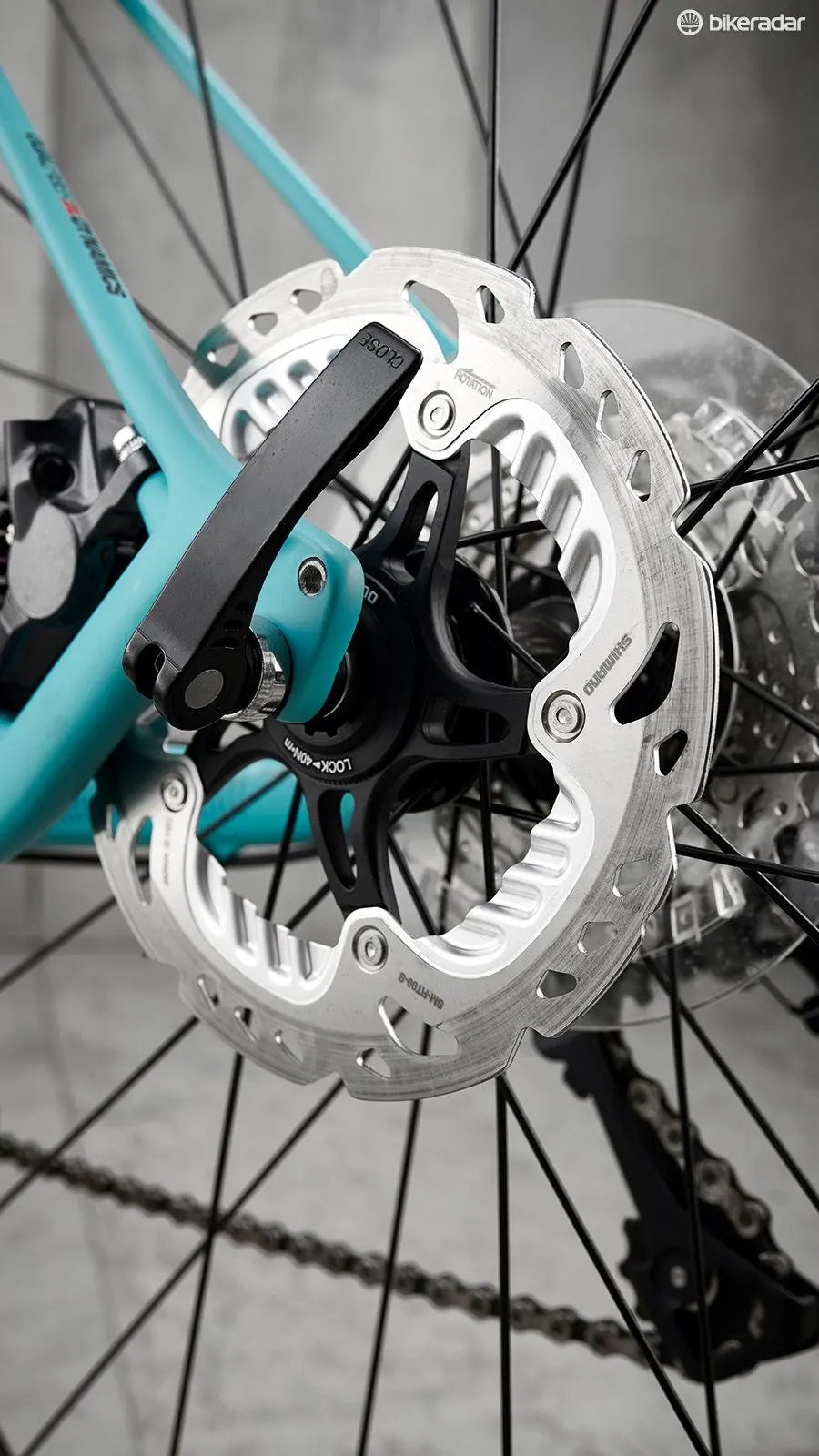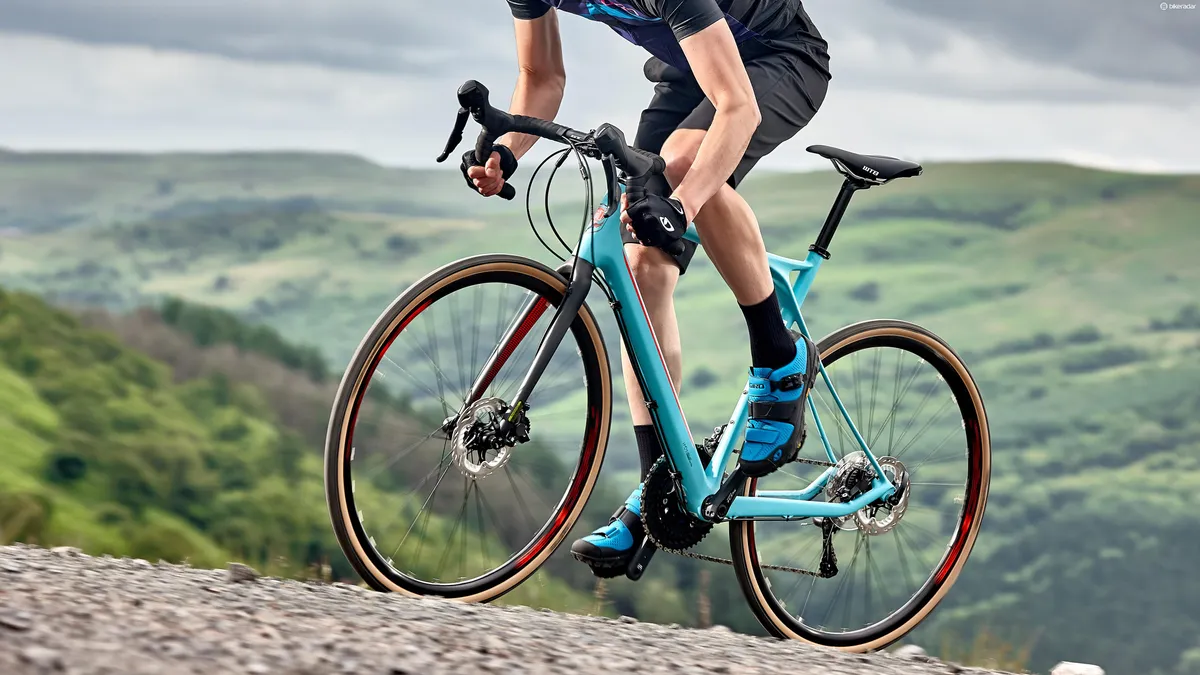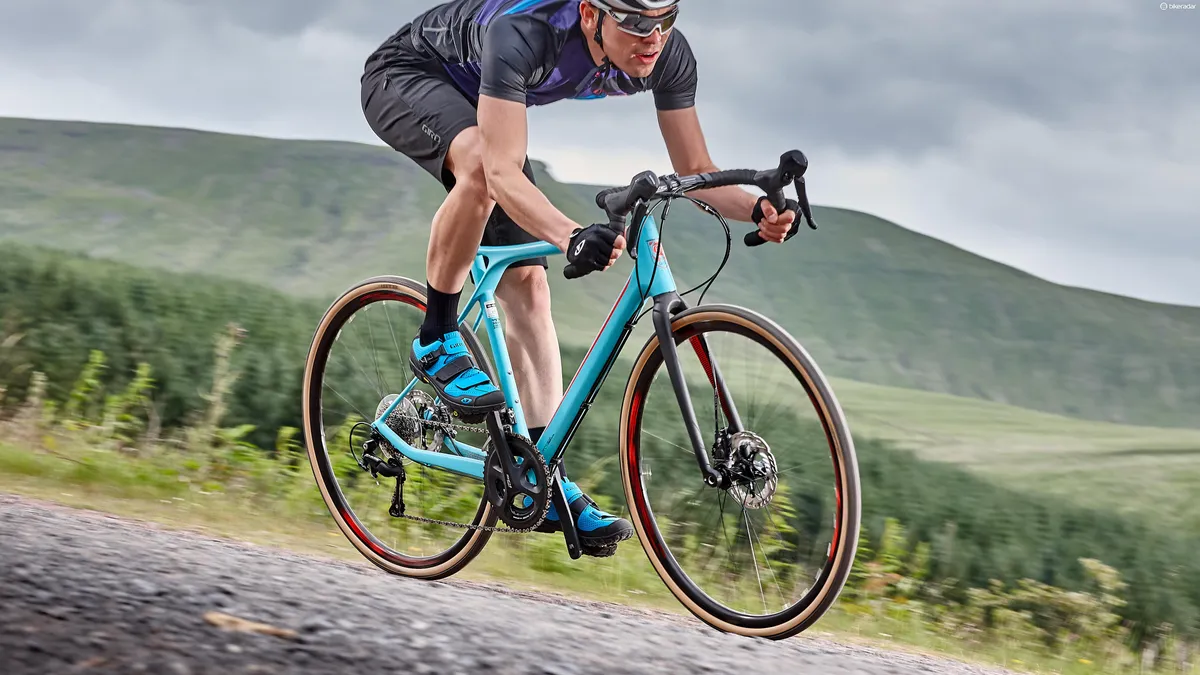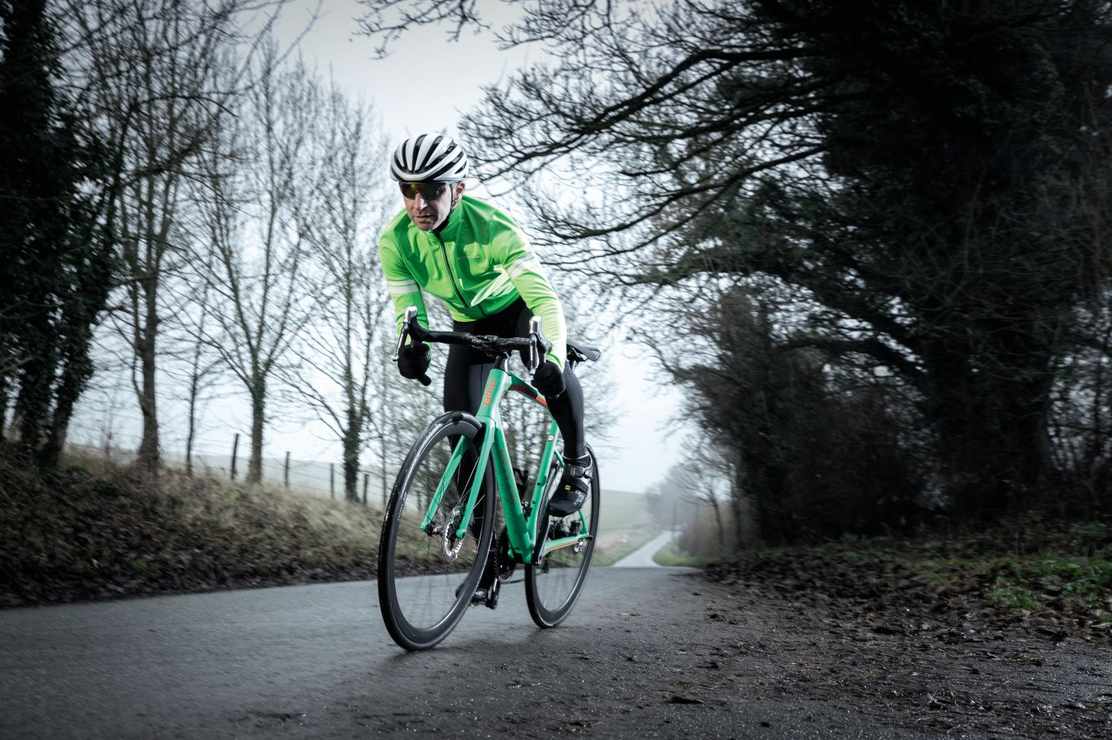GT started in 1972, and was a great innovator in the fledgling mountain bike scene. Comprising GT’s EnduRoad category, the Grade debuted ahead of the current gravel bike trend, but is equipped to compete.
This model is the cheapest carbon Grade in the range, as well as being the only all-carbon fibre adventure bike on test, and the most expensive, against the Kinesis Tripster AT, Merida Silex 700, Ridley X-Trail Adventure, Specialized Sequoia Elite and Trek Checkpoint ALR5.
So, what does it offer that could make that higher price worth paying?
GT Grade Carbon Expert frame
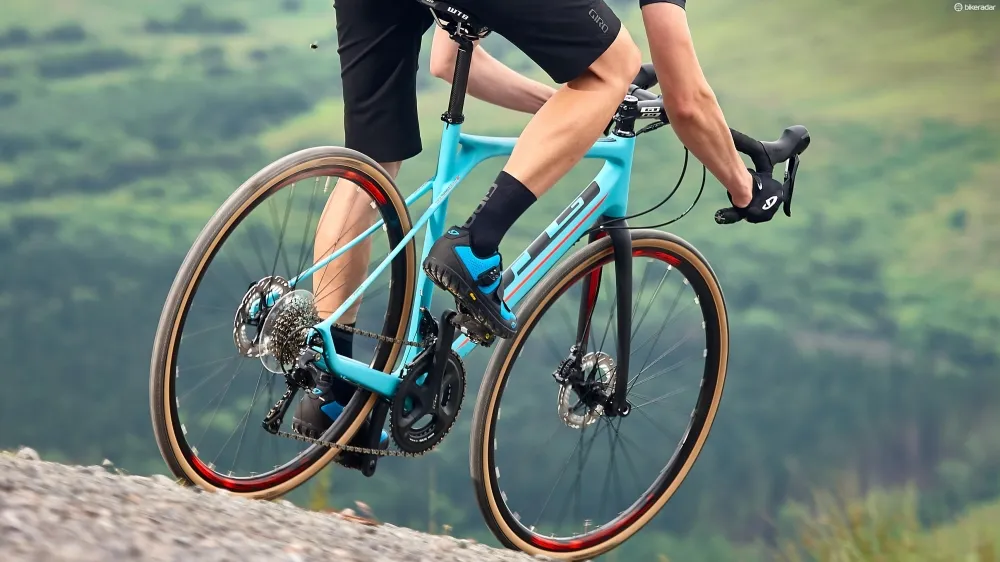
First up is that high-modulus carbon frame, incorporating GT’s trademark Triple Triangle seat cluster design, which braces the main triangle and permits additional seated flex from the dropped seatstays.
All the cables and brake hoses run externally beneath the down tube and chainstays, with the front brake hose clipped on to the front of the fork leg. I’d replace its single clip with a cable tie, because if it gets pulled off, the hose will rub against the tyre. It’ll take full mudguards, the rear attaching to a seatstay bridge that bungees on to the stays.
GT Grade Carbon Expert tyres
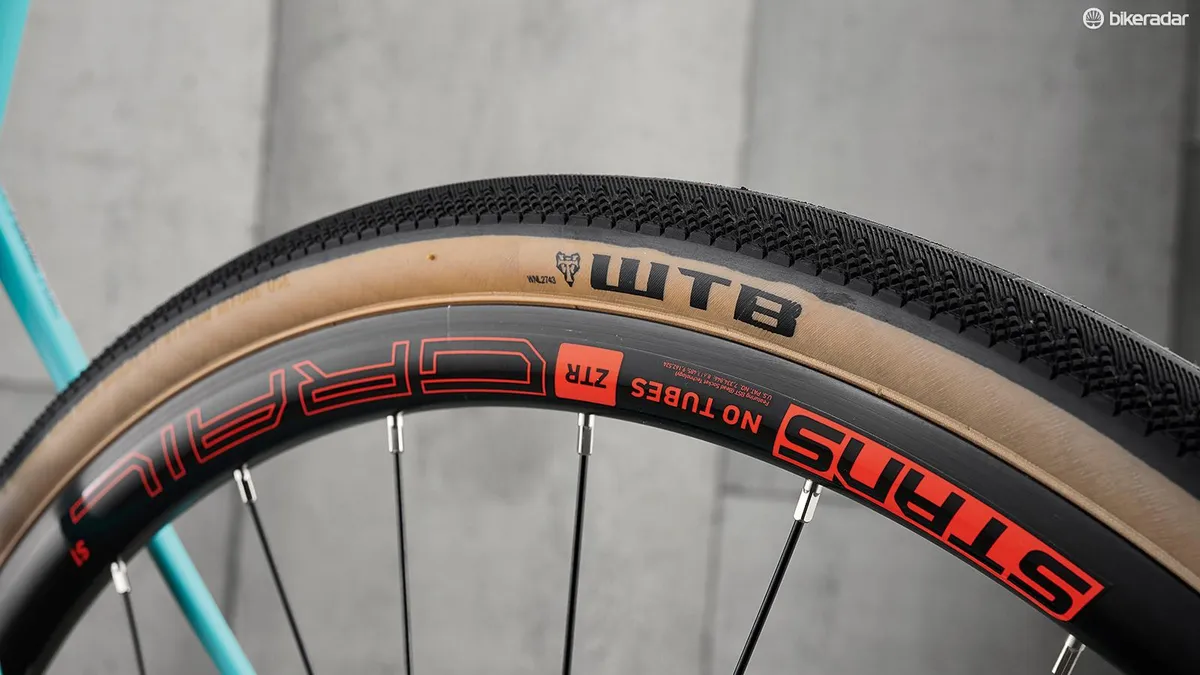
GT refers to the Grade as a road bike, something borne out by the road-oriented gearing of 52/36 and 11-32, and on this model, the 32mm, mostly slick WTB Exposure tyres.
Narrowest amongst the test group, and with the highest minimum pressure of 65psi, they have a smooth central band, bordered by shallow angled grooves before a jagged collection of barely raised, small, square tread blocks, edged by a row of low rectangles along the shoulder.
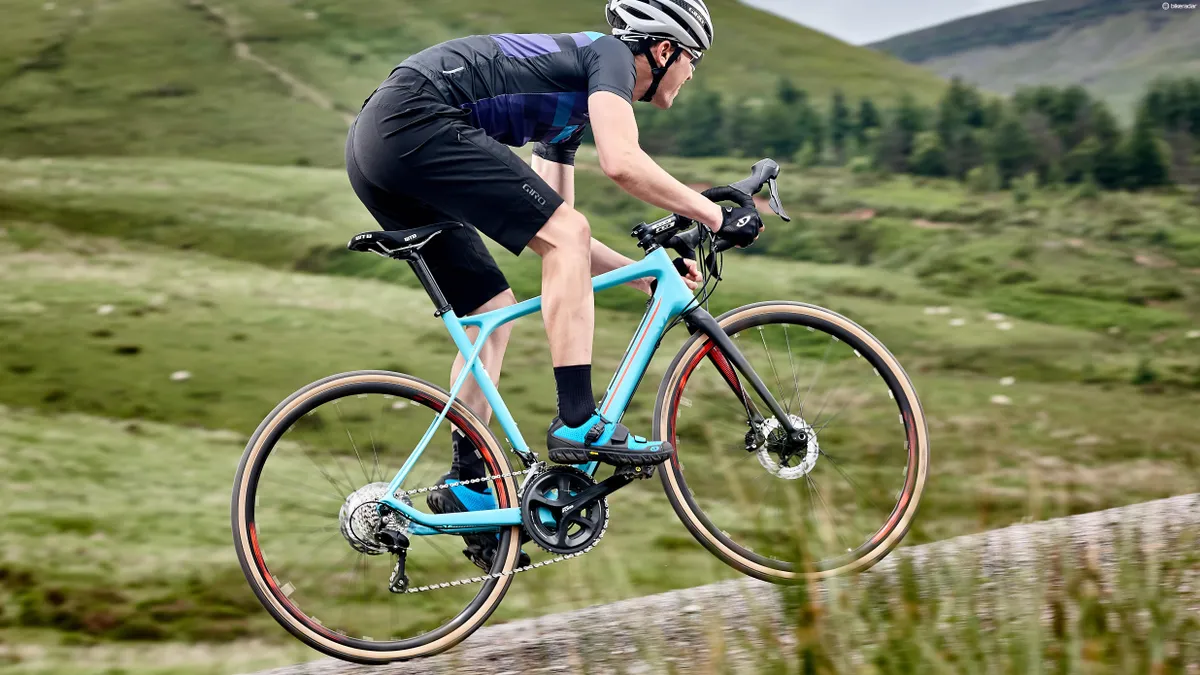
They’re mounted on a pair of 25mm wide Stan’s ZTR Grail tubeless rims, measuring 33mm, but although the rims are tubeless compatible, the tyres aren’t.
While there’s 10mm or more additional tyre clearance at the fork and seatstays, the chainstays only have 5mm on each side of the Exposures, limiting bigger rubber choices.
GT Grade Carbon Expert ride impressions
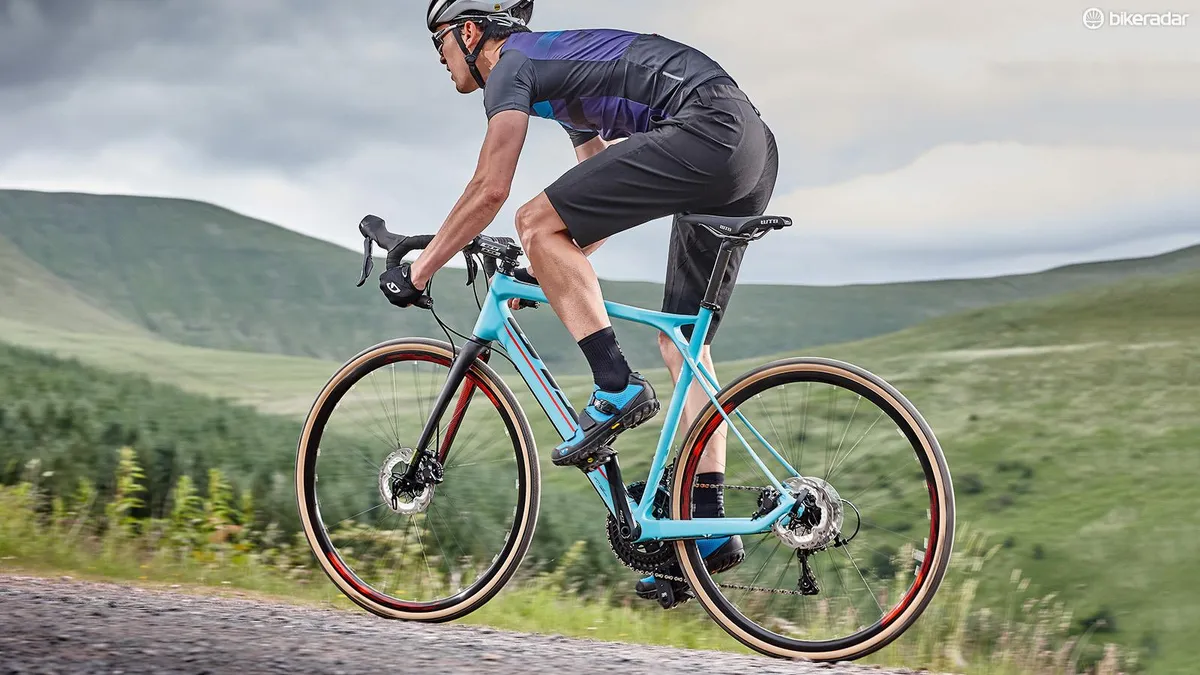
On the road, it’s the most road bike-like of the group, hardly surprising given the tyres, and eagerly picks up pace. I appreciated the 42cm flared drop bar’s relaxing 50cm outer width and hand position on the hoods at speed.
The Grade’s geometry pitches a 73-degree seat angle with a 70.5-degree head angle, reasonably short head-tube, lengthy chainstays and a 1,025mm wheelbase, ensuring a good riding position, and relaxing handling that’s stable on gravel.
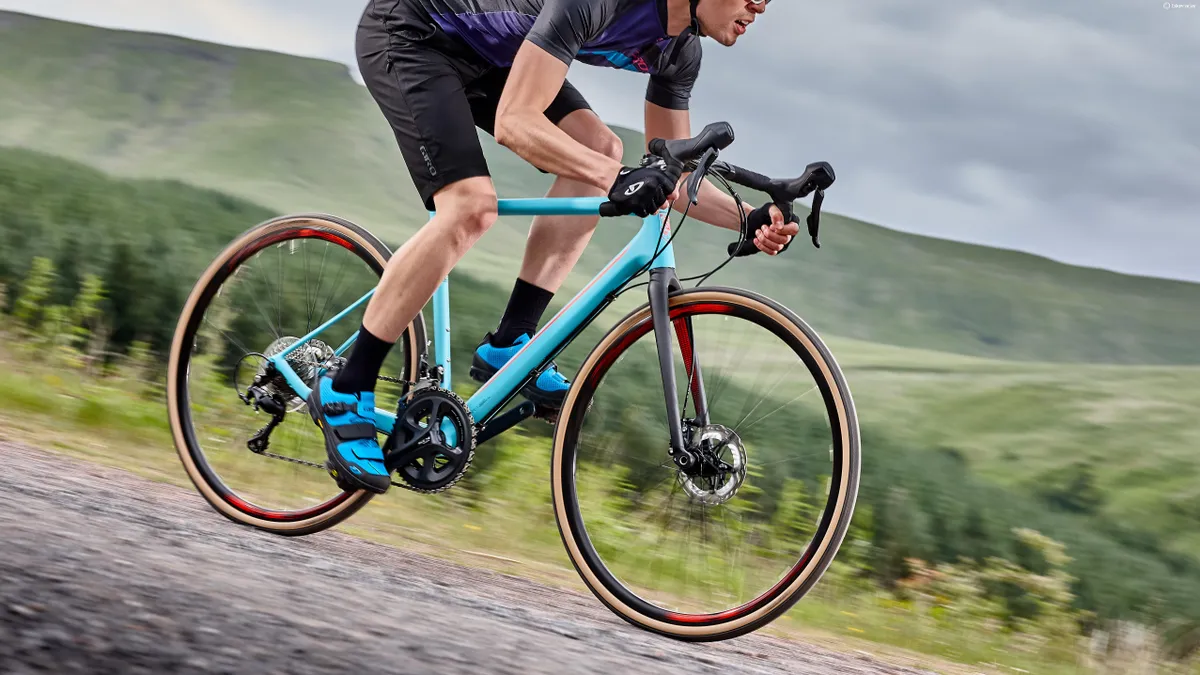
It’s the best climber of this bunch, which has less to do with overall weight than with tyre, wheel and frame efficiency. Carbon fibre’s damping properties smooth road vibrations, and help to fend off big hits on dirt and gravel, while the WTB saddle and carbon seatpost keep things seriously comfortable.
With 65psi in the relatively low volume tyres, things can get a little choppy on the roughest surfaces, and there’s minimal shoulder grip to deal with loose cambers.
As a fast bikepacker with a seat pack and frame bag it would fly over mixed routes with a tarmac bias, and with mudguards added it’s a decent commuting option.
Although specced with 105 and the RS505 hydraulics, the Grade’s frameset and wheels make it decent value, but it lacks some of the features common on the current crop of gravel bikes. For the adventurous rider, fitting 35mm tubeless gravel-friendly rubber would maximise the Grade’s exploration potential.

